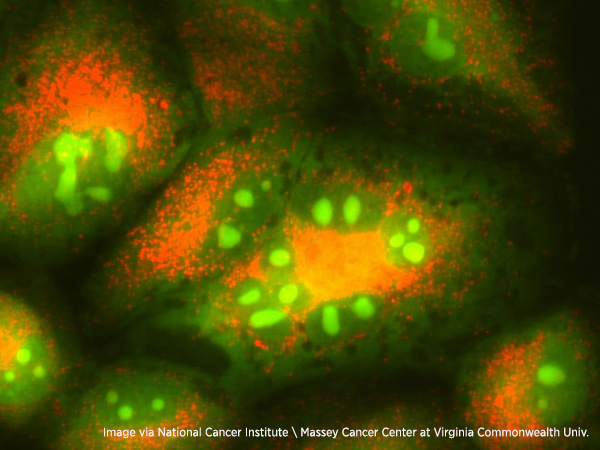A New Treatment for Advanced Lung Cancer
The FDA has approved an immune checkpoint inhibitor – a type of cancer immunotherapy – as a first-line therapeutic for certain patients with non-small cell lung cancer.

The U.S. Food and Drug Administration (FDA) approved cemiplimab-rwlc (Libtayo) for patients with advanced non-small cell lung cancer, the most common form of lung cancer, who have locally advanced disease that is not metastatic and who are not candidates for surgical resection or definitive chemoradiation. The indication is for patients whose tumors test positive for high PD-L1 expression but do not show EGFR, ALK, or ROS1 genetic aberrations.
Cemiplimab-rwlc is a type of immunotherapy known as an immune checkpoint inhibitor. It is the seventh checkpoint inhibitor approved by the FDA. It is the sixth to target the PD-1/PD-L1 pathway. Immune checkpoint inhibitors release the brakes on cancer-fighting immune cells called T cells, enabling them to destroy the cancer.
The efficacy of using cemiplimab-rwlc against non-small cell lung cancer was evaluated among 710 patients in a multicenter, randomized, open-label trial. Patients were randomized to either receive cemiplimab-rwlc or a platinum-based chemotherapy. The median overall survival was 22.1 months for patients in the cemiplimab-rwlc arm of the study compared with 14.3 months for those in the chemotherapy arm. The median progression free survival time was 6.2 months for patients who received cemiplimab-rwlc versus 5.6 months for those who received chemotherapy.
Non-small cell lung cancer accounts for more than 80 percent of all lung cancers. Collectively, lung cancer remains the leading cause of cancer death in the United States.
The FDA decision was rendered on February 22, 2021.
